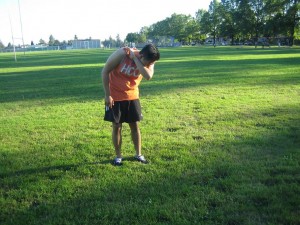Rhinitis involves swelling and irritation of the mucus lining of the nose. Seasonal rhinitis is a type of allergic rhinitis that develops in a particular season and once it persists throughout the year, it is called perennial rhinitis.
Seasonal rhinitis is common in the pollen season such as spring and summer where the pollen that is present in the air increases. Children above the age of 6 years old as well as adults are susceptible to this condition which is also called as hay fever.
Hay fever causes cold-like symptoms such as runny nose, nasal congestion, itchy eyes, sinus pressure and sneezing episodes. It is caused by allergic reactions to outdoor and indoor allergens such as pollen, pet dander and dust mites.
Hay fever can make an individual depressed and affect his/her performance at work or at school and obstructs with some leisure activities.
Seasonal rhinitis is not a dangerous disease and individual have difficulty in engaging in their daily work due to seasonal rhinitis and the following signs and symptoms are likely to occur:

- Runny and watery nose
- Itchiness in the upper palate and nose
- There is sneezing followed by itchiness and there is a continuous bout of sneezing that makes the individual irritable and exhausted.
- A feeling of a stuffed nose, difficulty in inhaling caused by inflammation of the inner lining of the nose.
- There is bleeding in the nose
- The eyes is watery, itchy and red
- Heaviness in the head
- Postnasal drip where the mucus drains backwards into the throat from the nose
- Loss of smell
- Clogged ears, sore throat and coughing
- Swelling, blue-colored skin can be seen under the eyes which is called allergic shiners
Causes of seasonal allergic rhinitis
- Seasonal rhinitis is caused by the reaction of the body to seasonal allergens such as spores from trees, pollen from air, grass and weed. These allergens enter the body through the nose and mouth when breathing.
- The immune system of the body overreacts to the normally harmless substance as a threat by releasing histamine and produce allergic rhinitis symptoms such as runny nose and sneezing. Plants such as horse chestnut, timothy and rye grass, and also ragweed can cause allergic rhinitis.
Treatment and home remedies for seasonal rhinitis
- Mix one teaspoon of Indian gooseberry juice with a teaspoon honey. The mixture should be taken at least three times a day. Gooseberry is rich in Vitamin C which helps in boosting the immune cells of the body in fighting against offensive sources.
- Avoid engaging in outdoor activities early in the morning where there is plenty of pollen in the air.
- Close doors and windows during the peak pollen season.
- Use an allergy-grade filter in the ventilation system
- Install a dehumidifier in order to minimize the indoor humidity
- Use an air conditioning in the house and car.
- Avoid mowing the lawn or raking leaves, which causes stirring up or molds and pollen.
- Wear a dust mask when doing outdoor activities such as gardening.
- Wash dishes and empty garbage on a daily basis.
